Abstract
From June through September 1979, diarrheal illness occurred in an estimated 1,850 persons who had camped at a private campground in Arizona. Illness occurred more frequently among campers at that campground than among those in the adjacent State park (P less than 0.0001). The same well served both the private and the State campgrounds as the source of drinking water, but that water was distributed to the two campgrounds through separate lines. Illness was significantly associated with drinking water at the campsite (P less than 0.0001), drinking larger quantities of campsite water (P less than 0.001), and camping on the southwest side of the campground (P less than 0.001). Samples of the water collected from the system during January through June contained no coliform bacteria. However, all those samples had been collected from the State park only. Of the 11 water samples submitted for bacteriological analyses during the summer, 3 had high levels of bacteria. Excavation of the water system uncovered a direct cross connection between the potable water system and a sewage-effluent irrigation system. This outbreak calls attention to the importance of designing, maintaining, and monitoring potable water systems properly, especially those proximate to wastewater re-use systems.
Full text
PDF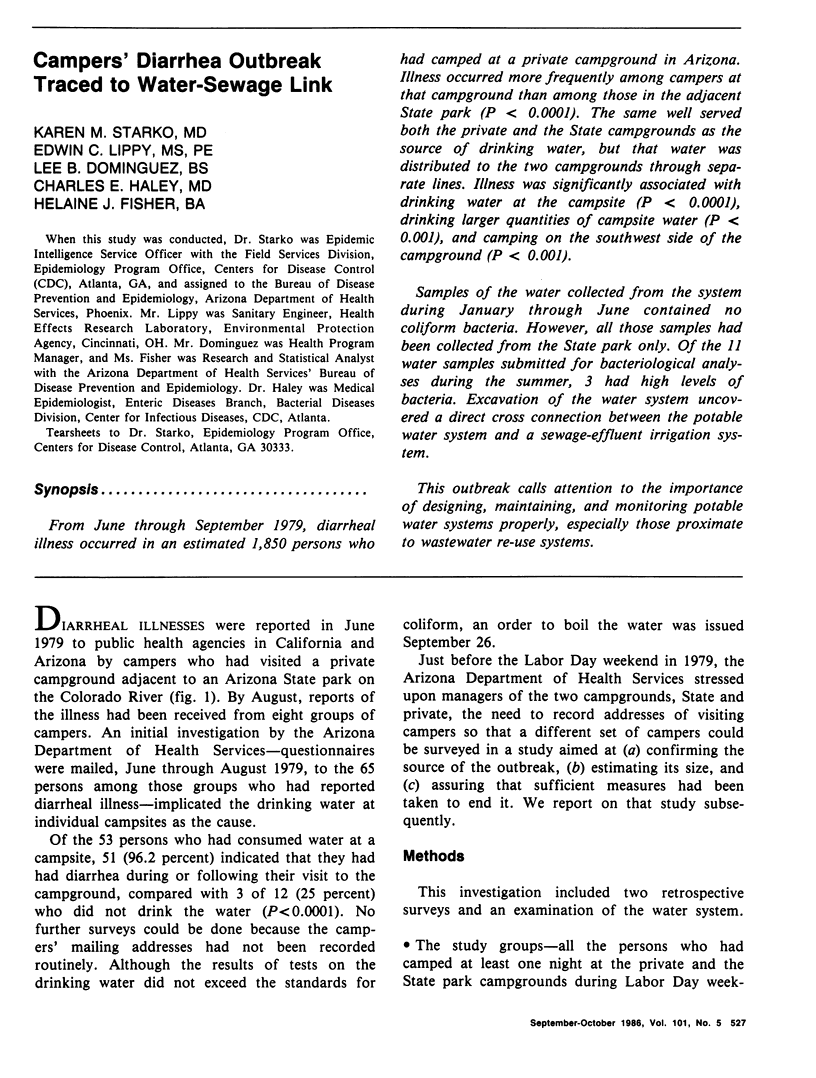
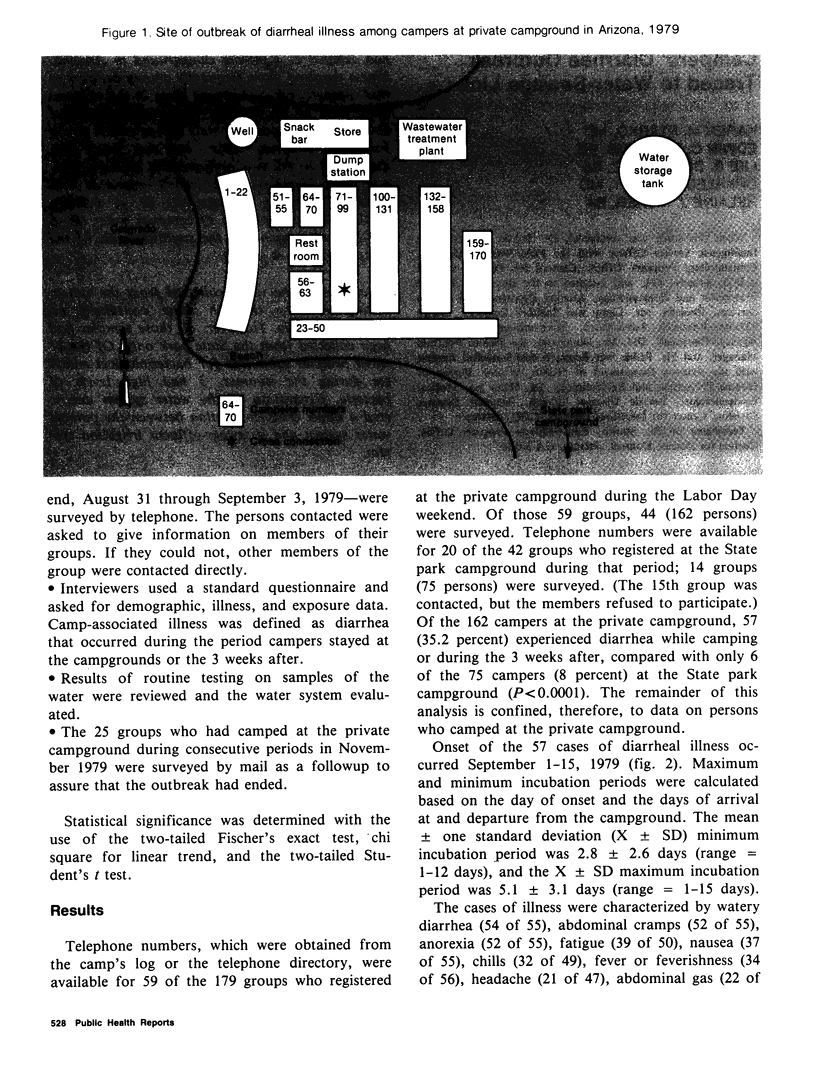
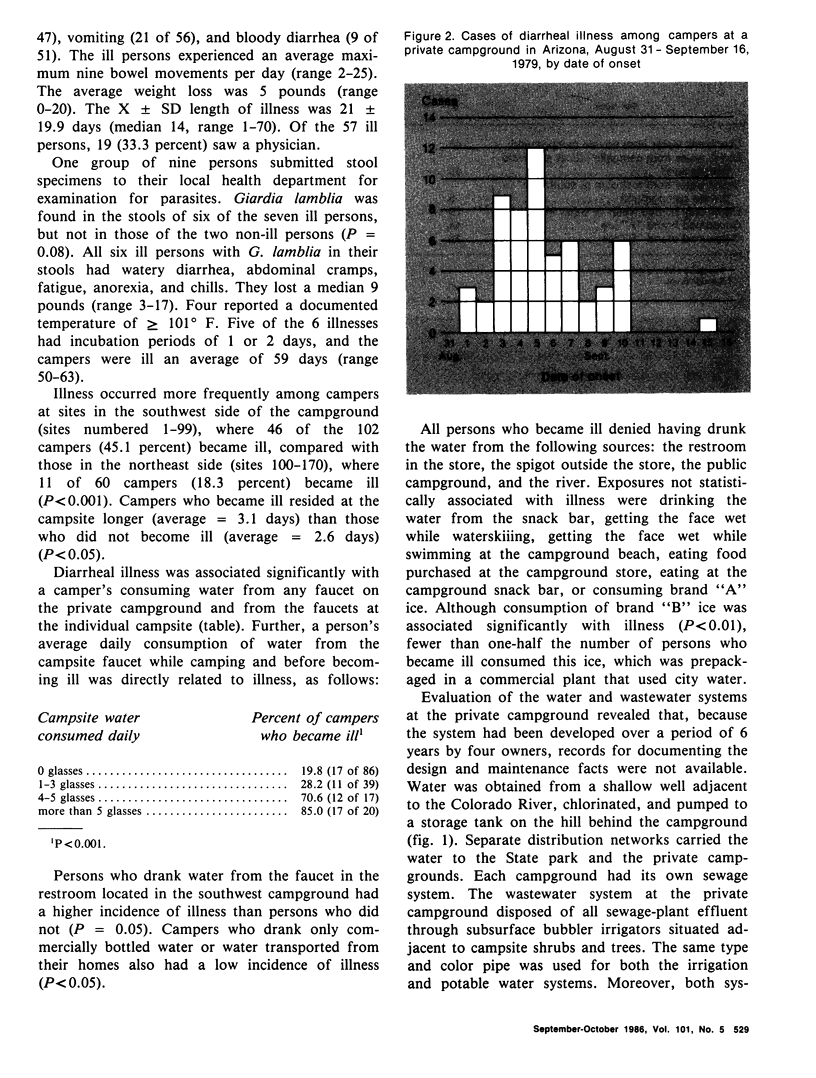
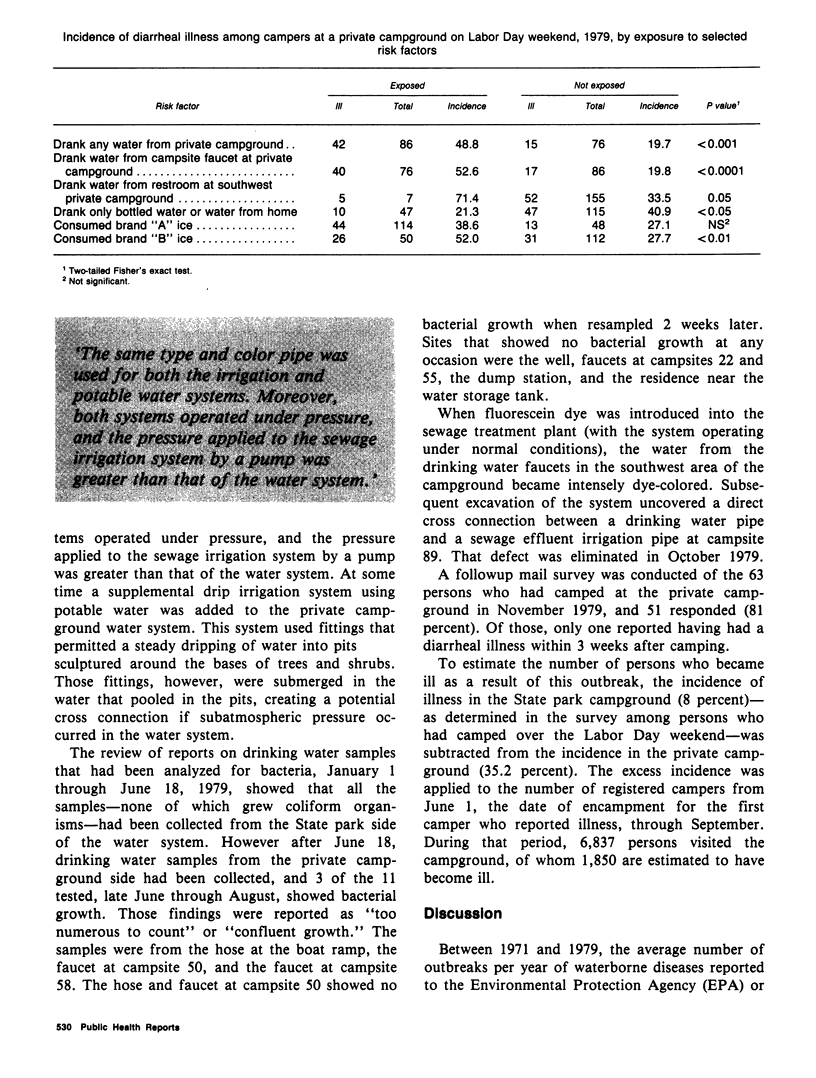
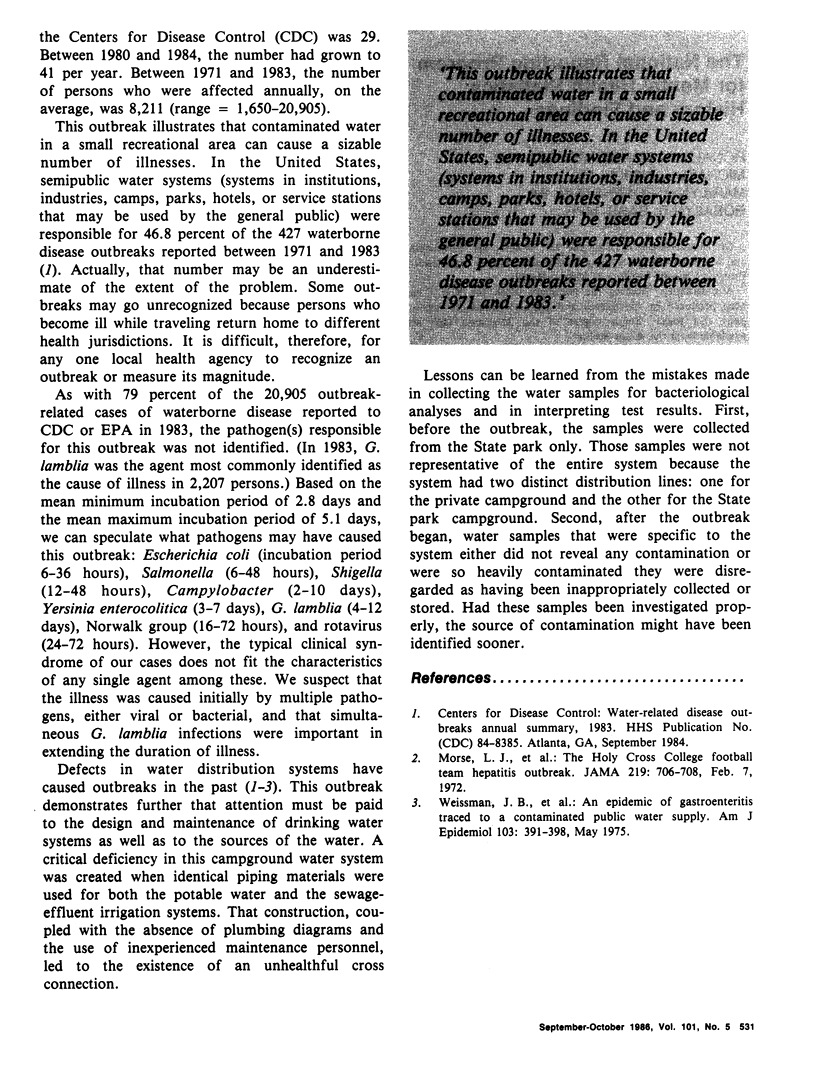
Selected References
These references are in PubMed. This may not be the complete list of references from this article.
- Morse L. J., Bryan J. A., Hurley J. P., Murphy J. F., O'Brien T. F., Wacker W. E. The Holy Cross college football team hepatitis outbreak. JAMA. 1972 Feb;219(6):706–708. [PubMed] [Google Scholar]
- Weissman J. B., Craun G. F., Lawrence D. N., Pollard R. A., Saslaw M. S., Gangarosa E. J. An epidemic of gastroenteritis traced to a contaminated public water supply. Am J Epidemiol. 1976 Apr;103(4):391–398. doi: 10.1093/oxfordjournals.aje.a112238. [DOI] [PubMed] [Google Scholar]


